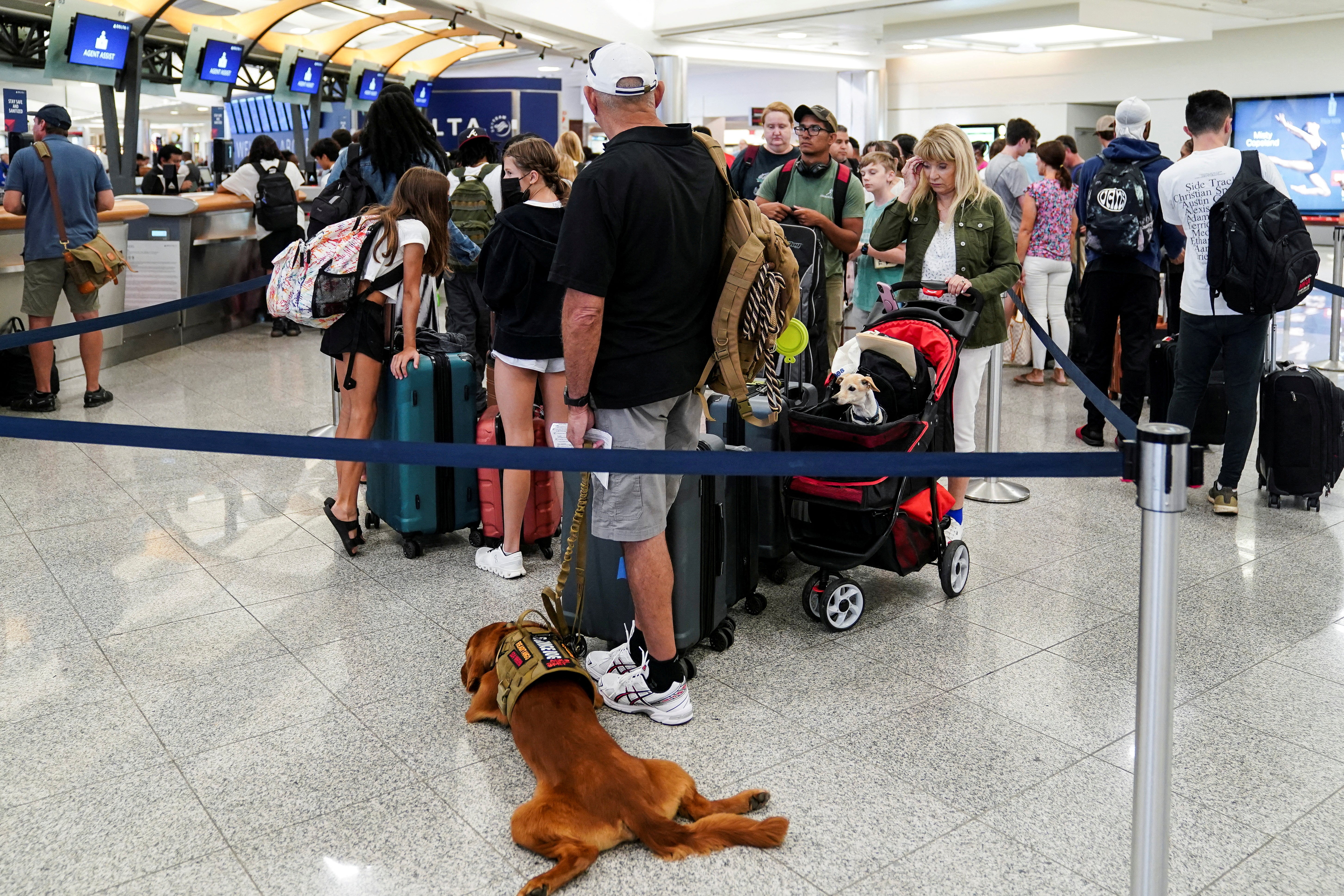We’re heading for a summer of airport chaos – but it’s not all doom and gloom
If we look beyond the barriers that currently can make travel a misery – or stop us travelling altogether – we can glimpse a different and, in some ways, brighter future, writes Hamish McRae


Air travel will get more expensive. We know that, because Michael O’Leary, boss of Ryanair, says so, and he has been pretty good at crunching down the costs. He thinks the average fare for a Ryanair flight will rise from around €40 to between €50 and €60 over the next five years.
But wait a moment. Surely £50 for a flight from the UK to the Med would still be unbelievably cheap – a thousand miles for half the price of filling up the car or a couple of rounds of drinks in the pub. The more important question surely is whether air travel will also become more uncomfortable and less reliable.
This is a bad weekend for travel everywhere. It’s the Independence Day holiday in the States, with airports seeing the highest number of travellers since the pandemic began. As a result, there has been huge strains, with a string of cancellations, and nearly half the flights out of New York were delayed.
Here in Europe, the problems have been compounded by the threat of strikes in France and Spain. And there are more general sources of disruption, including the residual Covid restrictions. My colleague Simon Calder answers readers’ questions on how best to navigate one’s way through this dense forest of problems here.
This summer will be difficult for all the obvious reasons. But if we look beyond the barriers that currently can make travel a misery – or stop us travelling altogether – we can glimpse a different and, in some ways, brighter future in a couple of years’ time.
The argument goes like this. What is happening now is intolerable, but this disruption will end because the economic case for making it end is overwhelming. Travel and tourism are important businesses, very much so for some communities. For example, in 2019 they accounted for 21.2 per cent of Greece’s economy, in Portugal it was just under 20 per cent, and in Namibia nearly 15 per cent.
So it is tremendously in the self-interest of many countries to make it nicer to go there. That is why Portugal became the first EU country to allow UK visitors to use EU gates at airports back in April – though you should still get your passport stamped. A few days ago, Spain did the same at some of its major holiday destinations.
The question that follows is to what extent similar commercial pressure will change the airlines, airports and other enterprises in the travel chain too?
For the airlines, it is a straightforward thing. Ryanair sells itself on cheapness and reliability, two qualities that its customers prize. Its aim is to make the experience efficient, rather than nice – but at least passengers know the deal. It’s the airlines that pretend to offer a better service and don’t that are in deeper trouble.
For airports, it is more complicated. People have some choice but it is more limited. If you live in Manchester, you are pretty much lumbered with Manchester airport. Its new boss¸ Chris Woodroofe, has admitted that standards of service this summer will not be as good as those of 2019. But at least there is a new boss. It is good to know that when things go really badly, as they have there, that people are replaced. Mr Woodroofe was chief operating officer at Gatwick, where until the pandemic, standards were climbing, so we should not assume that things will always get worse.
To keep up to speed with all the latest opinions and comment, sign up to our free weekly Voices Dispatches newsletter by clicking here
This leads to perhaps the most important point of all. The whole travel industry will have to charge more, and if it does so, people will expect higher standards all round. Staff will have to be treated better. Managers on every level are used to being able to hire enough labour reasonably easily and cheaply. Those days are gone. Tight labour markets are different from slack ones, and we have the tightest in the UK for at least 40 years. Not many managers were even in work 40 years ago and certainly not in senior posts. It is a learning experience that has hardly begun. This is partly about money, of course, but it is also about decency – and, as I say, there is a lot to learn.
And we as customers have to learn something too. It is to be resilient in the case of changes and problems. It is to be cooperative, because we need more people to enjoy working in the travel business. It is to be prepared to pay more, because moving to greener travel will – in the short-run – increase costs.
And finally, we need to value the whole experience. It is a huge freedom to be able to travel to an extent that no previous generation has been able to do. Let’s respect and cherish that freedom, even if this summer travel is a less-than-perfect experience.






Join our commenting forum
Join thought-provoking conversations, follow other Independent readers and see their replies
Comments